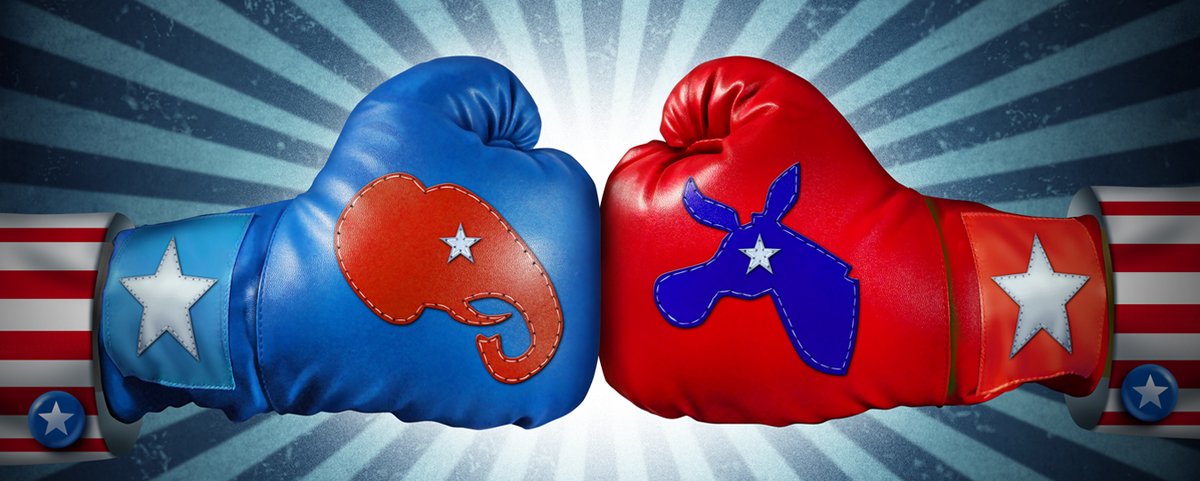Increased polarisation and conflict between political parties move citizens' focus from substantive arguments and place it on the sender of the proposal. The polarisation also strengthens people's confidence in their own arguments, no matter how good they are, according to new research from Aarhus University published in American Political Science Review.
2013.03.27 | ANDREAS G. JENSBY
Although political competition and disagreement constitute one of the basic conditions for democracy, new research findings from Aarhus University show that too much competition in the form of partisan polarisation and ideological distance weakens the impact of substantive arguments on public opinion formation. In strongly polarised political environments, the public tends to form opinions based on the party endorsing a specific political position or proposal, thus removing focus from the substance of the discussion.
This is one of the conclusions drawn by Professor Rune Slothuus from Aarhus University following a large-scale study conducted among Democratic and Republican voters in the USA. The survey was carried out in collaboration with Professor James N. Druckman from Northwestern University and Graduate Student Erik Peterson from Stanford University. The research findings have just been published in the recognised American Political Science Review.
"Conflicts between the parties awaken people's partisan identity and fighting spirit. Then you blindly follow your party and attempt to tear your opponents' arguments apart no matter whether the arguments are weak or strong"
Rune Slothuus - professor, Department of Political Science and Government, Aarhus BSS
Arguments taking a back seat
US politics have been characterised by increasing political divisions over the past 30-40 years, and researchers are now for the first time studying precisely how partisan polarisation affects opinion formation. They have done this by looking at how citizens weight political arguments when they know/do not know which party endorses the proposal and when they are told whether the two parties are far apart or not too far apart on a particular political issue.
- The polarisation results in a fundamental change in how people form their opinions. When the parties are polarised, people tend to a higher degree to back proposals endorsed by the party they support. And this irrespective of whether the arguments against the proposal are actually better than those in favour. On the other hand, when people do not know which party is endorsing a proposal, or if they are told that the parties not too far apart on the given political issue, the arguments are the controlling factor, explains Rune Slothuus.
Another – somewhat ironic – conclusion in the study is the fact that people become more confident about their own opinions when the parties are polarised – although these same opinions are thus less based on the substance of the arguments presented. Rune Slothuus explains why this is the case:
- Conflicts between the parties awaken people's partisan identity and fighting spirit. Then you blindly follow your party and attempt to tear your opponents' arguments apart no matter whether the arguments are weak or strong, he says.
Findings could apply equally to Denmark
Danish politics are far less polarised than in the USA. However, the findings could still apply equally to Denmark and other countries, says Rune Slothuus.
- The psychological mechanisms are basically the same. If the parties are in conflict and are very uncompromising, people disregard the arguments as long as their own party endorses the issue. Sometimes the partisan divide is stark in Denmark, whereas at other times we see a cooperative democracy reaching agreement on a policy despite disagreement, he says.
Rune Slothuus does not necessarily believe that the polarisation is directly detrimental to democracy, but politicians should be aware that conflicts, harsh rhetoric and a stark partisan divide result in the public forming opinions based less on substance and more on who is presenting the proposal.
- The political rhetoric and the way in which the political debate is conducted rub off on public opinion. When the parties seek compromise and collaboration based on discussions, they also make the public focus on the substantive pros and cons, explains Rune Slothuus.
Further information:
Rune Slothuus
Professor
Department of Political Science and Government
Aarhus BSS - Aarhus University
Tel.: +45 87 16 56 91
Email: slothuus@ps.au.dk
Web: www.ps.au.dk/en/slothuus
